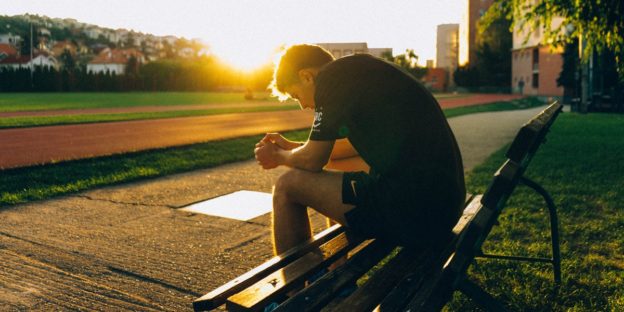Relapse is a process, not a single event. It occurs when you return to using drugs or alcohol after remaining abstinent for a period of time. Even though relapse rates are highest in early recovery, it can happen to anyone at any stage. This is why it’s important to have a solid recovery plan and to make healthy choices that support a life of sobriety. Becoming complacent or putting down your guard can make you more likely to return to drugs and alcohol.
Because relapse happens in stages, there are ways to spot the signs before it’s too late. By being aware of these signs, you can reach out for help and avoid using drugs and alcohol again. While relapse does not mean failure, it can make it harder to achieve long-term recovery.
What are the Red Flags of Relapse?
Here are some warning signs that you may be growing closer to relapsing.
- Unnecessary risk-taking. While you will face some risks in recovery as you come out of your comfort zone, you should not take unnecessary risks. If you are putting yourself in dangerous situations, you could be seeking thrills that will eventually lead to drugs and alcohol.
- Glamorizing drug or alcohol use. It’s concerning if you start fantasizing about using drugs or alcohol again. This means that your brain is starting to see these substances as “good” rather than destructive.
- Negative thoughts and emotions. It’s normal to have bad days, but if you’re experiencing pervasive feelings of sadness, self-pity or isolation, this could damage your recovery. Reach out for help from your doctor, therapist or 12-step group. It’s possible that you may have untreated anxiety or depression.
- Neglecting your responsibilities. If you find yourself skipping your meetings or falling out of your routine, take this seriously. It’s possible that you’re feeling a lost sense of purpose. Again, reach out for help from your support network to reestablish these connections.
- Lying to yourself. Do you find yourself thinking about using drugs and alcohol again? Are you telling yourself that a small amount won’t hurt? Before a relapse, people often find that they make exceptions for using again.
HALT: An Effective Relapse Prevention Tool
If you recognize any of the above symptoms in yourself, it’s important to get help right away. It’s much easier to prevent relapse than go through treatment again. Many clinical experts recommend using the relapse prevention tool HALT – Hungry, Angry, Lonely, Tired.
- Hungry. Hunger can be a physical or emotional need. Are you getting the right nutrients? Do you have the affection and understanding you need from friends and family? Understand what you are hungry for and how to satisfy these needs.
- Angry. If you’re feeling angry, try to understand what is causing it. Look at the situation objectively and see if you can find a reasonable solution. Creative activities like painting or drawing, exercise and psychotherapy can help you deal with unresolved anger.
- Loneliness. Loneliness can occur, even when you’re surrounded by people. If you’re feeling lonely, find ways to connect with your support network. Go to a meeting, text a friend or visit a loved one. Even better, volunteer your time to people in need.
- Tiredness. Being tired takes a toll on your mind, body, and spirit. Make sure you’re getting enough sleep at night and following a balanced schedule that doesn’t have you running all over.
When More Treatment is Needed
Once you know where your emotions are coming from, you can address them and find a solution that works. This will prevent you from falling into the trap of using drugs and alcohol to cope. If you do relapse, realize that setbacks do happen. Relapse is not a failure, and it does not mean that all of your hard work is erased. What you may benefit from is an outpatient rehab in Agoura. To learn more about these options, contact the Awakenings Treatment Center today.








